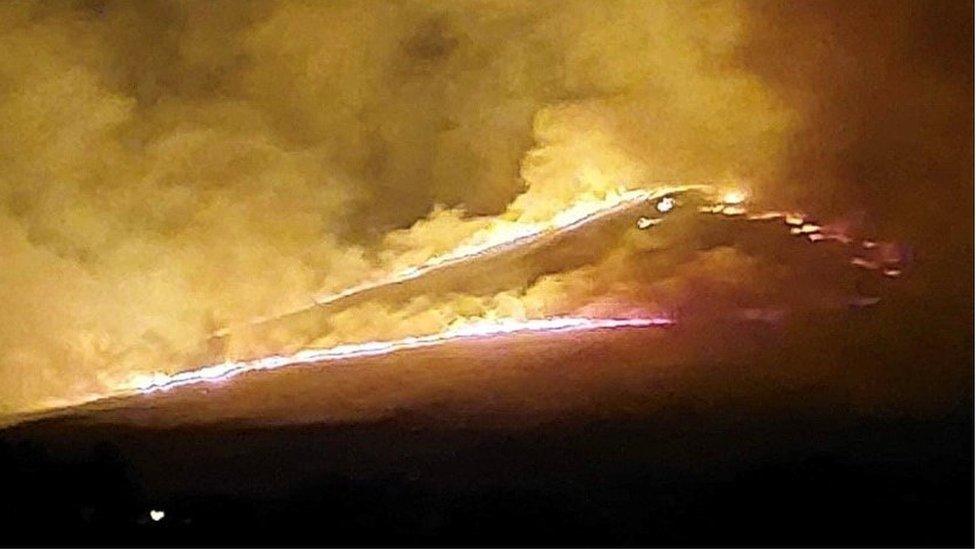Mournes fires: Fire service believes Bloody Bridge fire was 'deliberate'
- Published
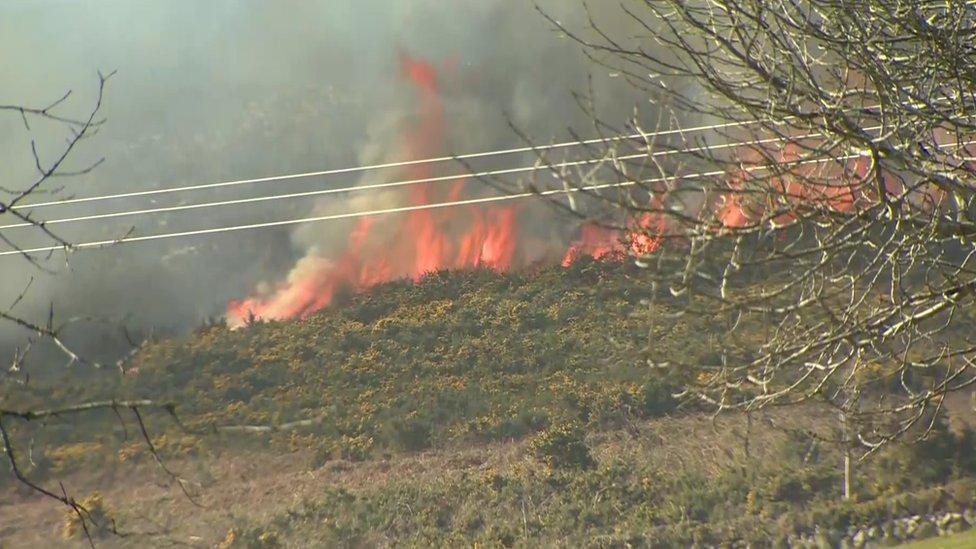
The Bloody Bridge fire was extinguished at about 13:30 on Thursday
Firefighters returned to the Mournes on Thursday to tackle another gorse fire in the mountains, believed to be started deliberately.
About 50 crew members dealt with three areas of fire near Bloody Bridge, County Down.
The fire service said it was a "very significant" blaze, which was "taking a toll" on firefighters physically.
Fires were first reported in the Mournes on Tuesday, at Spelga and the Hen and Cock mountains.
The Northern Ireland Fire and Rescue Service said those blazes had been extinguished and crews were withdrawn on Wednesday night.
The Bloody Bridge fire was extinguished at about 13:30 on Thursday.
At the height of the incident, six fire appliances and the specialist wildfire team attended, the Northern Ireland Fire & Rescue Service (NIFRS) said.
The cause is believed to be deliberate, it added.
Speaking to BBC News NI on Thursday morning, Group Commander Andy Burns said firefighters were using beaters and knapsack sprayers to battle flames.

At-the-scene on Thursday afternoon
By Aileen Moynagh, BBC News NI
Driving out the main Newcastle to Annalong road, just past Bloody Bridge you can start to see smoke rising from the Mournes.
You couldn't miss the fire service operation as a number of appliances are parked in a lay-by.
Looking up to the mountains the first thing you see is the black scarring, where the fire has already been put out.
Plumes of smoke are rising from lower levels and intermittent flames are visible through the trees.
The fire service says these flames are part of what they call a controlled burn where firefighters burn the vegetation, under the watchful eye of Mourne Heritage Trust, to create a fire break.
The firefighters have to go in on foot and beat the fire out, so it's exhausting work.
A dry, warm day doesn't help and while the fire service says some light rain would help, anything more can wash vegetation away and cause more environmental damage.

The fires were the latest in a string of gorse fires this week, which the fire commander said were "draining on energy" for crews.
"It's taking a tremendous toll in terms of our resources - not only are we taking resources out of our towns and villages, the crews are starting to become exhausted," he said.
"It's very difficult to walk up a steep mountainside...and when we get there the only way to fight this fire is to physically to beat it."
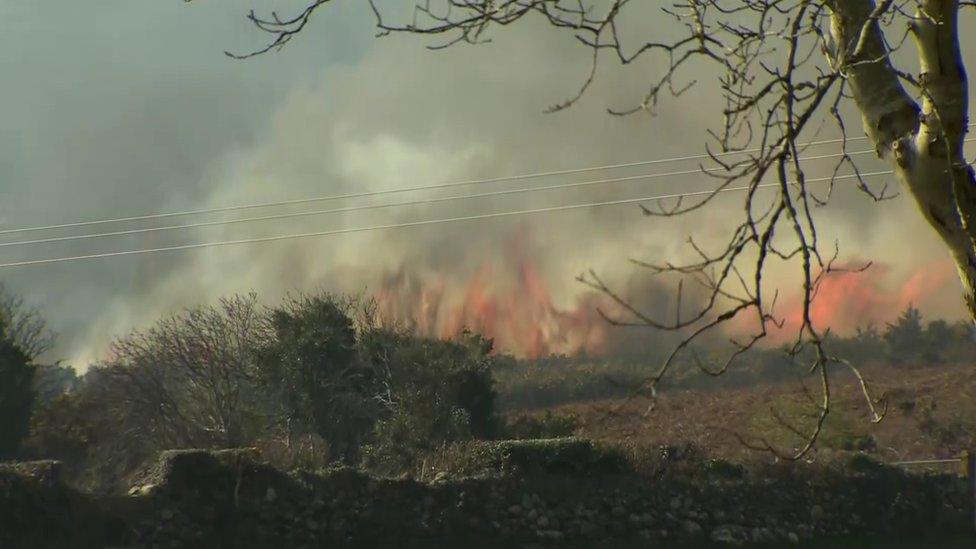
Group Commander Andy Burns says the heathland has been tough for firefighters to work through
Mourne Heritage Trust, which provides environmental and visitor management services in the Mournes, said four of its staff attended the fires on Thursday to support NIFRS personnel.
Allow Facebook content?
This article contains content provided by Facebook. We ask for your permission before anything is loaded, as they may be using cookies and other technologies. You may want to read Meta’s Facebook cookie policy, external and privacy policy, external before accepting. To view this content choose ‘accept and continue’.
At the height of the incidents on Wednesday, the fire service said the operation involved six engines and more than 30 personnel.
At one point the fires were described as "significant", with the front measuring about two miles (3km).
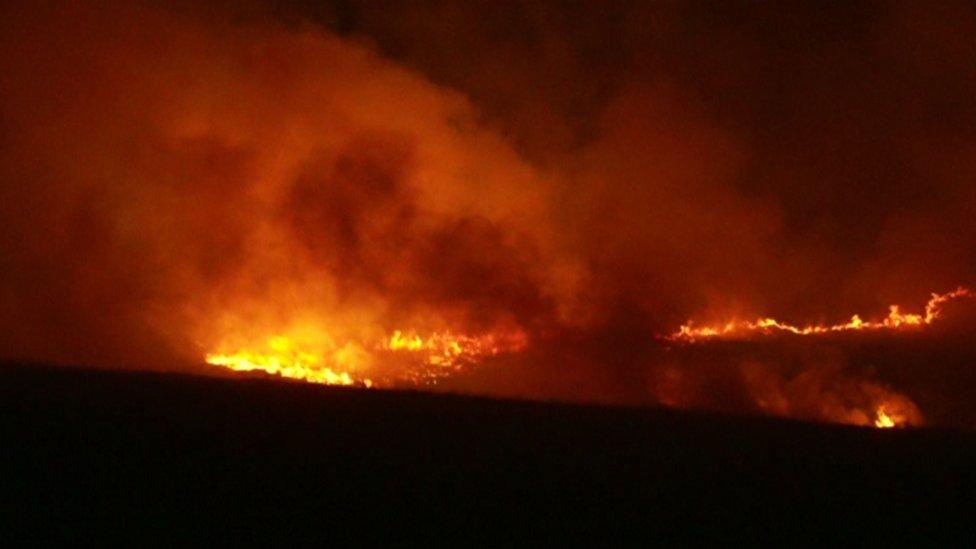
Crews were first called to the Mourne Mountains on Tuesday
NI Water said the three fires on Wednesday caused severe damage to the natural environment, adding that wildfires can pose a risk to drinking water supply.
Rebecca Allen, catchment liaison officer, said while tap water quality remained unaffected, work was taking place to keep it that way.
"Wildfires not only pose a terrible risk to all life but can remove the primary layer of vegetation, leaving the burned bare soil exposed to erosion which then makes its way into the reservoirs, from where water is abstracted for treatment to be drinking water," she said.
"Extra water samples have to be collected and analysed, streams from burned areas need isolated, and other remedial measures must be taken like blocking streams to protect reservoirs."
Firefighters also put out gorse fires on Monday including at Belfast's Cave Hill and Black Mountain and in Rathfriland, County Down.
Related topics
- Published22 March 2022
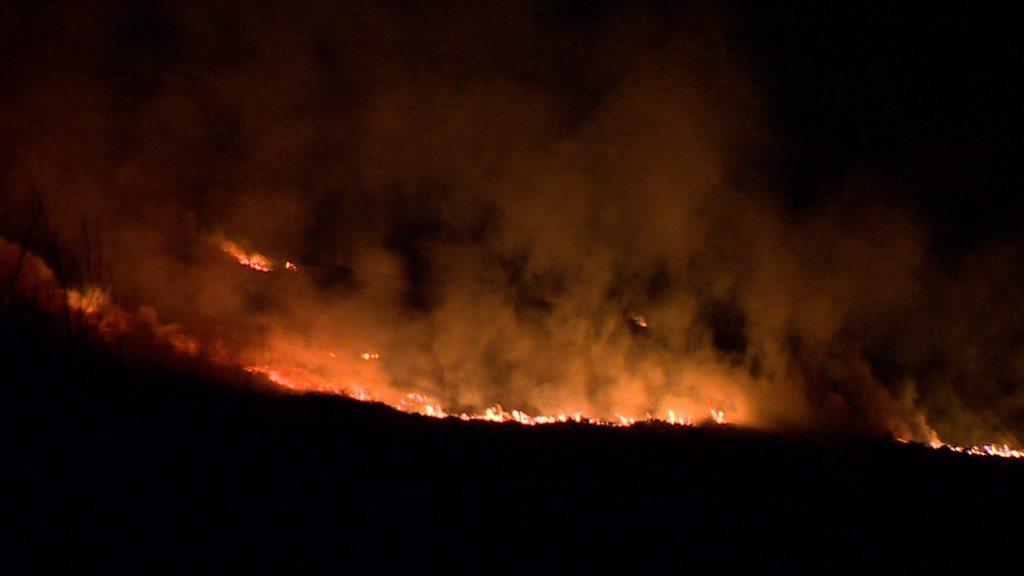
- Published23 March 2022
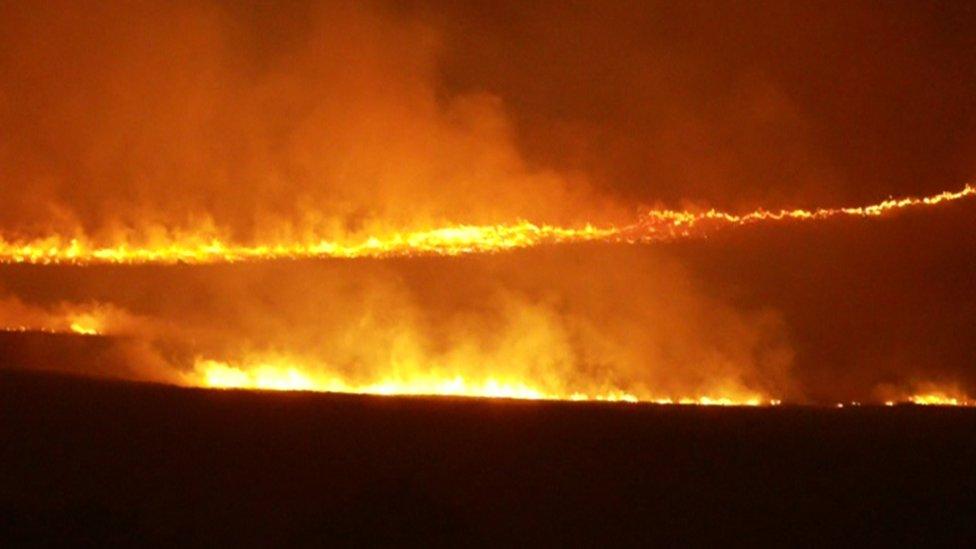
- Published22 March 2022
